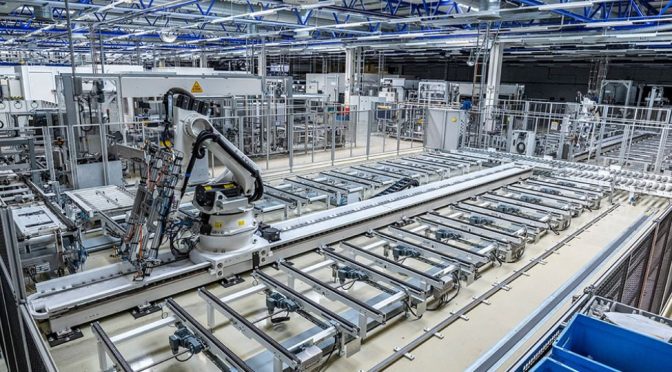The Biden administration announces a $71 million investment to strengthen the U.S. photovoltaic supply chain.
As part of President Biden’s “Investing in America” agenda, the DOE (Department of Energy) has unveiled a $71 million investment. This funding is intended for research, development and demonstration projects. 16 million from the Bipartisan Infrastructure Law. The aim is to develop the network of national manufacturers in the solar energy supply chain. The selected projects aim to fill gaps in domestic solar manufacturing capacity. They include the manufacture of silicon equipment, ingots and wafers, as well as silicon solar cells and thin-film cells.
Objectives and impact of funded projects
Funded projects will open up new markets for solar technologies, especially dual-use PV (photovoltaic applications) such as building-integrated PV and agrivoltaics. These efforts complement and reinforce the Biden-Harris administration’ s goal of rapidly deploying clean energy to achieve net zero emissions by 2050. These initiatives also advance the administration’s Justice40 initiative, which aims to ensure that 40% of the overall benefits of federal climate and clean energy investments accrue to disadvantaged communities. Jennifer M. Granholm, U.S. Secretary of Energy, said:
“The Biden-Harris administration is committed to building an American-made solar supply chain that spurs innovation, lowers costs for families and creates jobs across the country. Thanks to historic funding and the actions of the President’s Clean Energy Agenda, we are able to deploy more solar power – the cheapest form of energy – to millions more Americans with American-made stamped panels.”
Encouraging solar innovation
The funding will support three projects under the Silicon Solar Manufacturing and Dual-Use Photovoltaics Incubator program. This program helps develop technologies to bring silicon wafer and cell manufacturing back to the United States. The investment will enable new solar companies to prove their technologies, with the aim of becoming eligible for the capital needed to scale up production, thus accelerating their path to commercialization.
Advances in dual-use PV technologies
Seven other projects will advance dual-use PV technologies to exploit their potential to electrify buildings, decarbonize the transport sector and reduce land-use conflicts. These projects include initiatives such as Appalachian Renewable Power, which will receive $1.6 million, as well as GAF Energy, Wabash and Noria Energy Holdings. Re:Build Manufacturing will receive $1.9 million, RCAM Technologies $600,000, The R&D Lab $1 million, Ubiquity Sola $11.2 million, Silfab Solar Cells $5 million and Silfab Solar WA $400,000. These technologies aim to create innovative solutions for integrating solar energy into various aspects of American infrastructure.
Strengthening US leadership in thin-film technologies
Eight projects have been selected for the Advancing U.S. Thin-Film Solar Photovoltaics program. Four of them will focus on CdTe technologies, which offer potential advantages over today’s dominant silicon technologies, such as lower energy consumption and lower manufacturing costs. For example, First Solar has received $15 million to improve the efficiency and competitiveness of CdTe systems. Other projects will demonstrate the innovation of tandem PV devices, which combine established PV technologies such as silicon with perovskite thin-film technologies approaching market maturity.
This $71 million investment marks an important step in the Biden administration’s effort to strengthen the domestic solar energy supply chain. By stimulating innovation and opening up new markets, these projects aim to make solar energy more accessible and profitable for Americans. The success of these initiatives could play a crucial role in achieving the administration’s ambitious climate goals, while supporting economic growth and job creation.


